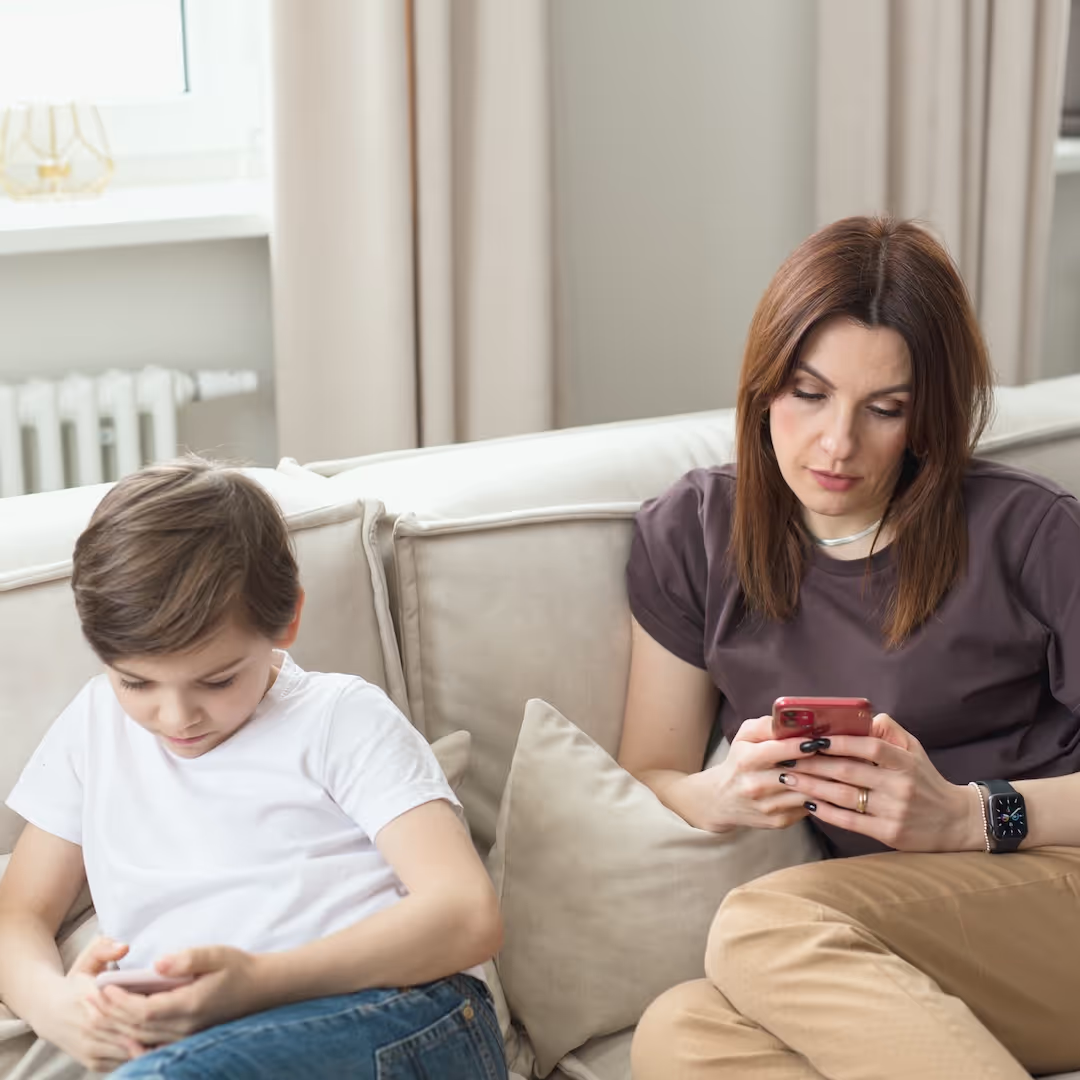



If you’re like me, you’ve become pretty attached to your device. I check it to find out where I need to be today, to text my friends and kids, to find out what’s up at the office, to record an idea I want to follow up on later … it is my portable office! I am working and parenting! I need to be updated all the time!
Ex-Design Ethicist & Product Philosopher at Google, Tristan Harris wrote:
"The average person checks their phone 150 times a day. Why do we do this? Are we making 150 conscious choices?"
No, we are not. What we are doing is looking for the dopamine release that comes with that little pleasure of new email or a Facebook tag. Harris goes on to say:
"Several billion people have a slot machine their pocket:
In a recent poll by Common Sense Media, 69% of parents and 78% of teens reported that they check their devices at least hourly. I've seen this with my own kids and their friends. A survey from Cardiff University reported that many teenagers even wake up during the night to check social media.
So how often is too often? Have you thought about it? Here are some ways to get into a conversation about it with your family this week:
As well as our weekly blog, we publish videos like this one every week on the Screenagers YouTube channel
Learn more about showing our movies in your school or community!
Join Screenagers filmmaker Delaney Ruston MD for our latest Podcast

Learn more about our Screen-Free Sleep campaign at the website!
Our movie made for parents and educators of younger kids
Learn more about showing our movies in your school or community!
Learn more about showing our movies in your school or community!
Join Screenagers filmmaker Delaney Ruston MD for our latest Podcast

Learn more about our Screen-Free Sleep campaign at the website!
Our movie made for parents and educators of younger kids
Join Screenagers filmmaker Delaney Ruston MD for our latest Podcast
As we’re about to celebrate 10 years of Screenagers, we want to hear what’s been most helpful and what you’d like to see next.
Please click here to share your thoughts with us in our community survey. It only takes 5–10 minutes, and everyone who completes it will be entered to win one of five $50 Amazon vouchers.

If you’re like me, you’ve become pretty attached to your device. I check it to find out where I need to be today, to text my friends and kids, to find out what’s up at the office, to record an idea I want to follow up on later … it is my portable office! I am working and parenting! I need to be updated all the time!
Ex-Design Ethicist & Product Philosopher at Google, Tristan Harris wrote:
"The average person checks their phone 150 times a day. Why do we do this? Are we making 150 conscious choices?"
No, we are not. What we are doing is looking for the dopamine release that comes with that little pleasure of new email or a Facebook tag. Harris goes on to say:
"Several billion people have a slot machine their pocket:
In a recent poll by Common Sense Media, 69% of parents and 78% of teens reported that they check their devices at least hourly. I've seen this with my own kids and their friends. A survey from Cardiff University reported that many teenagers even wake up during the night to check social media.
So how often is too often? Have you thought about it? Here are some ways to get into a conversation about it with your family this week:
As well as our weekly blog, we publish videos like this one every week on the Screenagers YouTube channel
Sign up here to receive the weekly Tech Talk Tuesdays newsletter from Screenagers filmmaker Delaney Ruston MD.
We respect your privacy.

If you’re like me, you’ve become pretty attached to your device. I check it to find out where I need to be today, to text my friends and kids, to find out what’s up at the office, to record an idea I want to follow up on later … it is my portable office! I am working and parenting! I need to be updated all the time!
Ex-Design Ethicist & Product Philosopher at Google, Tristan Harris wrote:
"The average person checks their phone 150 times a day. Why do we do this? Are we making 150 conscious choices?"
No, we are not. What we are doing is looking for the dopamine release that comes with that little pleasure of new email or a Facebook tag. Harris goes on to say:
"Several billion people have a slot machine their pocket:
In a recent poll by Common Sense Media, 69% of parents and 78% of teens reported that they check their devices at least hourly. I've seen this with my own kids and their friends. A survey from Cardiff University reported that many teenagers even wake up during the night to check social media.
So how often is too often? Have you thought about it? Here are some ways to get into a conversation about it with your family this week:
As well as our weekly blog, we publish videos like this one every week on the Screenagers YouTube channel

It feels like we’re finally hitting a tipping point. The harms from social media in young people’s lives have been building for far too long, and bold solutions can’t wait any longer. That’s why what just happened in Australia is extremely exciting. Their new nationwide move marks one of the biggest attempts yet to protect kids online. And as we released a new podcast episode yesterday featuring a mother who lost her 14-year-old son after a tragic connection made through social media, I couldn’t help but think: this is exactly the kind of real-world action families have been desperate for. In today’s blog, I share five key things to understand about what Australia is doing because it’s big, it’s controversial, and it might just spark global change.
READ MORE >
I hear from so many parents who feel conflicted about their own phone habits when it comes to modeling healthy use for their kids. They’ll say, “I tell my kids to get off their screens, but then I’m on mine all the time.” Today I introduce two moms who are taking on my One Small Change Challenge and share how you can try it too.
READ MORE >
This week’s blog explores how influencers and social media promoting so-called “Healthy” ideals — from food rules to fitness fads — can quietly lead young people toward disordered eating. Featuring insights from Dr. Jennifer Gaudiani, a leading expert on eating disorders, we unpack how to spot harmful messages and start honest conversations with kids about wellness, body image, and what “healthy” really means.
READ MORE >for more like this, DR. DELANEY RUSTON'S NEW BOOK, PARENTING IN THE SCREEN AGE, IS THE DEFINITIVE GUIDE FOR TODAY’S PARENTS. WITH INSIGHTS ON SCREEN TIME FROM RESEARCHERS, INPUT FROM KIDS & TEENS, THIS BOOK IS PACKED WITH SOLUTIONS FOR HOW TO START AND SUSTAIN PRODUCTIVE FAMILY TALKS ABOUT TECHNOLOGY AND IT’S IMPACT ON OUR MENTAL WELLBEING.
